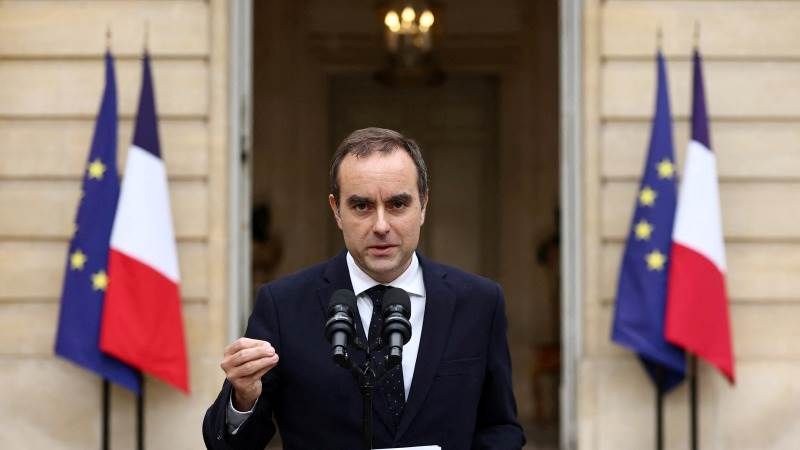France Plunges Back Into Political Turmoil as Lecornu Resigns — But This Crisis Runs Deeper Than Before
France Plunges Back Into Political Turmoil as Lecornu Resigns — But This Crisis Runs Deeper Than Before
By
David Goldfarb
Last updated:
October 7, 2025
First Published:
October 7, 2025

Photo: AzerNews
When Prime Minister Sébastien Lecornu announced his resignation just 27 days after taking office, confusion gripped Paris. Journalists scrambled to confirm who was actually running the country — the ministers Lecornu had appointed just hours earlier, or those from the previous cabinet. In an unprecedented twist, President Emmanuel Macron granted Lecornu an additional 48 hours to hold last-ditch talks with rival parties in hopes of breaking the deadlock.
This moment underscores a broader pattern of instability in French politics. With Lecornu’s exit, Macron is now preparing to appoint his sixth prime minister in under two years — a staggering turnover rate that reflects deep divisions in the political landscape following the July 2024 snap election.
The Aftermath of a Fractured Election
The seeds of this crisis were sown in the 2024 parliamentary elections, which produced no clear majority. Competing blocs on the right, left, and center splintered the National Assembly, forcing Macron to govern through fragile coalitions and improvised alliances.
The outcome left Macron’s centrist alliance, Ensemble, reliant on tenuous support from Les Républicains (LR) and other small parties. These arrangements, which once sustained the government, have now collapsed under the weight of political rivalry and personal ambition.
Lecornu’s brief tenure, lasting less than a month, highlights the paralysis gripping French politics. Thirteen hours after he announced his new cabinet, he was already facing open rebellion from within his own governing coalition.
The Allies Who Turned Against Him
Unlike previous crises triggered by opposition no-confidence votes, Lecornu’s downfall came from within. His allies — not his enemies — brought his government to the brink.
In his resignation speech, Lecornu cited the “intransigence of political parties”, lamenting that every group demanded the adoption of its full program. He hinted at growing internal rivalries, suggesting that the 2027 presidential race was already fueling tensions.
His remarks were widely interpreted as a veiled critique of Bruno Retailleau, the reappointed interior minister and leader of Les Républicains. Retailleau publicly criticized Lecornu’s cabinet just hours after its formation, saying it “failed to deliver the promised political renewal.”
By Monday, LR’s leadership announced an emergency meeting to reconsider their support. Their 49 lawmakers, once part of Macron’s governing “socle commun” (common base), began distancing themselves — effectively stripping Lecornu of his parliamentary foundation.
Even senior figures like Bruno Le Maire, the long-serving economy minister who was shifted to defense, became symbols of discontent within the party. Ironically, a party long associated with fiscal discipline has now triggered one of France’s deepest governance crises.
Macron’s Waning Grip on Power
For President Macron, the resignation represents yet another test of authority in his second and final term. Constitutionally barred from running again in 2027, he faces declining approval ratings — hovering around 27%, according to recent polls — and an increasingly fragmented parliament.
The political center that carried Macron to victory in 2017 has splintered. Former allies are recalculating their futures, and rivals are circling ahead of what promises to be one of the most consequential presidential elections in decades.
Political analysts say Macron’s shrinking coalition marks the end of the “Macron era” of centrism, as traditional left-right divides reemerge. The collapse of the “socle commun” signals a realignment that could define French politics for the next decade.
48 Hours to Avoid a Political Freefall
In a dramatic turn, Macron asked Lecornu to delay his departure and attempt one final round of negotiations with opposition leaders. Lecornu confirmed on X (formerly Twitter) that he would report back to the president within 48 hours, outlining any possible breakthroughs.
Few expect miracles. The government has already spent nearly a month locked in gridlock, unable to pass key legislation or assemble a stable majority.
If talks fail, a second snap election within 18 months could become unavoidable — a move the far-right National Rally, led by Marine Le Pen and Jordan Bardella, is openly demanding. Polls currently place their bloc at 30–35%, well ahead of Macron’s centrists and the fragmented left.
However, new elections might not resolve the crisis. The left-wing coalition, once a strong counterweight, has fractured into competing factions of socialists, greens, and communists. Analysts warn that another election could simply reproduce the same deadlock.
A Broader European Context
France’s instability has broader implications for Europe’s political and economic landscape. As one of the EU’s key power centers, prolonged gridlock in Paris threatens progress on joint defense initiatives, climate policies, and fiscal coordination within the bloc.
The uncertainty has already spooked investors. French government bond yields have risen modestly since the resignation announcement, while the euro weakened slightly against the dollar. Business confidence, already fragile due to sluggish growth and high inflation, faces renewed pressure.
Economic analysts warn that continued instability could slow France’s GDP growth to around 0.8% in 2025, down from 1.1% projected earlier this year. Public debt, already exceeding 110% of GDP, limits the government’s ability to inject new fiscal stimulus.
France at a Political Crossroads
As the country awaits Macron’s next move, one message from Lecornu’s resignation speech has resonated widely:
“One must always prefer one’s country to one’s party.”
It was both a critique and a reflection of modern French politics — where personal ambition often eclipses collective responsibility.
Fifteen months after France’s last snap election, the dream of building a cooperative, coalition-style government — akin to Germany’s — has crumbled. Instead, France stands at a crossroads, facing the hard reality that its institutions, though resilient, are being tested by a new era of fragmentation and distrust.
Whether Macron opts for reconciliation or resets the political stage entirely, one thing is certain: the Fifth Republic has entered uncharted territory once again — and this time, the stakes are higher than ever.
Popular articles
Subscribe to unlock premium content
The Rise of Silent Walking Tours in Historic Cities

The Rise of Ultra-Niche Cooking Classes Focused on Historical or Regional Recipes

The Rise of One-Person Dining Experiences for Ultra-Introverts in Major Cities

The Rise of Silent Walking Tours in Historic Cities

The Rise of Ultra-Niche Cooking Classes Focused on Historical or Regional Recipes

The Rise of Silent Walking Tours in Historic Cities









